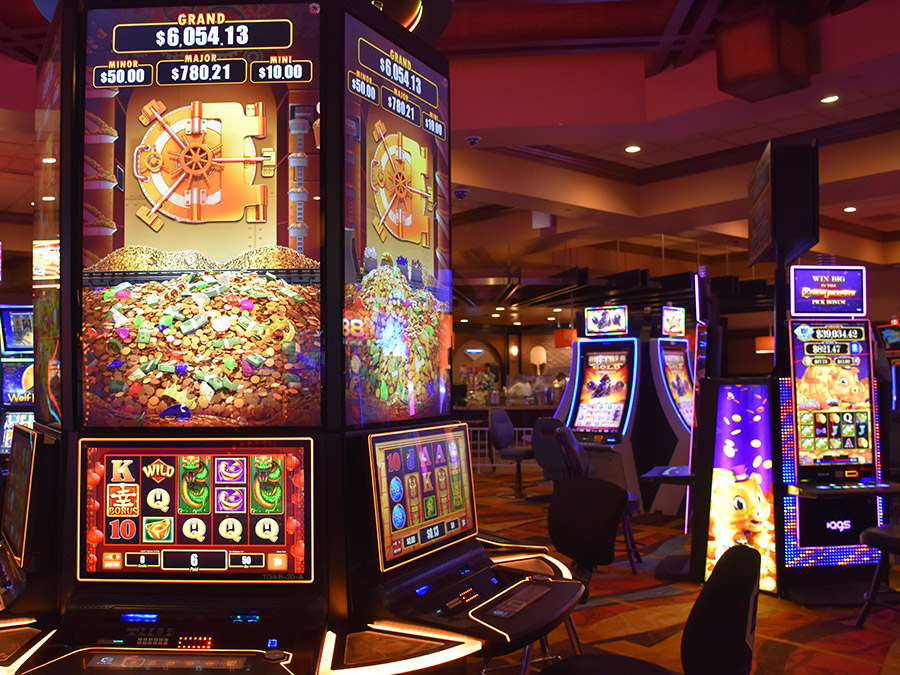
A slot is a narrow notch or groove, especially one for receiving something, such as a keyway in a piece of machinery or a slit for coins in a vending machine. A slot may also refer to:
In football, a position in the backfield where a fast player can catch the ball and run through gaps between a linebacker and a safety. The term is also used for the area in front of a goal between the face-off circles on an ice hockey rink, or for any unmarked area in a game.
An online slot is a casino video game where players place a bet and then spin the reels to see if they have won or lost. The symbols on the reels are usually arranged in rows and columns, with each row representing a different denomination of coin. In addition, many slots have special symbols that trigger bonus features or jackpots. Some have a fixed number of paylines while others allow players to choose their own.
To play an online slot, a player must first sign up for an account with an online casino. Once they have an account, they must deposit funds into it. Then they must select the slot they want to play and click on its spin button. The digital reels with symbols will then spin repeatedly until they stop, and the symbols that land on the paylines determine whether or how much the player wins.
Slots are available for both Mac and PC computers. However, some are more suited to laptops and tablets. This is because they often have a more simplified interface and smaller graphics, which can make them easier to navigate. Also, some have a higher resolution, which makes them look sharper and more detailed.
The most common way to win a slot is by spinning the reels. Each time the reels spin, the symbols on them will eventually appear in a particular pattern that corresponds to a prize amount. These patterns are called winning combinations. Many slots also have wild symbols that can replace other symbols to increase the odds of hitting a winning combination.
Some states have laws that regulate the number of slot machines that can be operated. These laws typically limit the total amount that can be won on a slot machine. The rules also specify whether or not the state will permit private ownership of slot machines. The laws vary greatly from state to state.
While there are a few states that prohibit the private ownership of slot machines, most allow it to some degree. Those that prohibit the private ownership of slots typically allow them only if they have been in operation for a certain amount of time or if they are older than a specified age.
In order to find the right slot for you, it’s important to know what you’re looking for. There are several factors to consider, including the type of slot, the amount of money you can win per spin, and how often the slot pays out. You should also check out the RTP (return-to-player) rate, which is an indicator of how well a slot will perform over time.